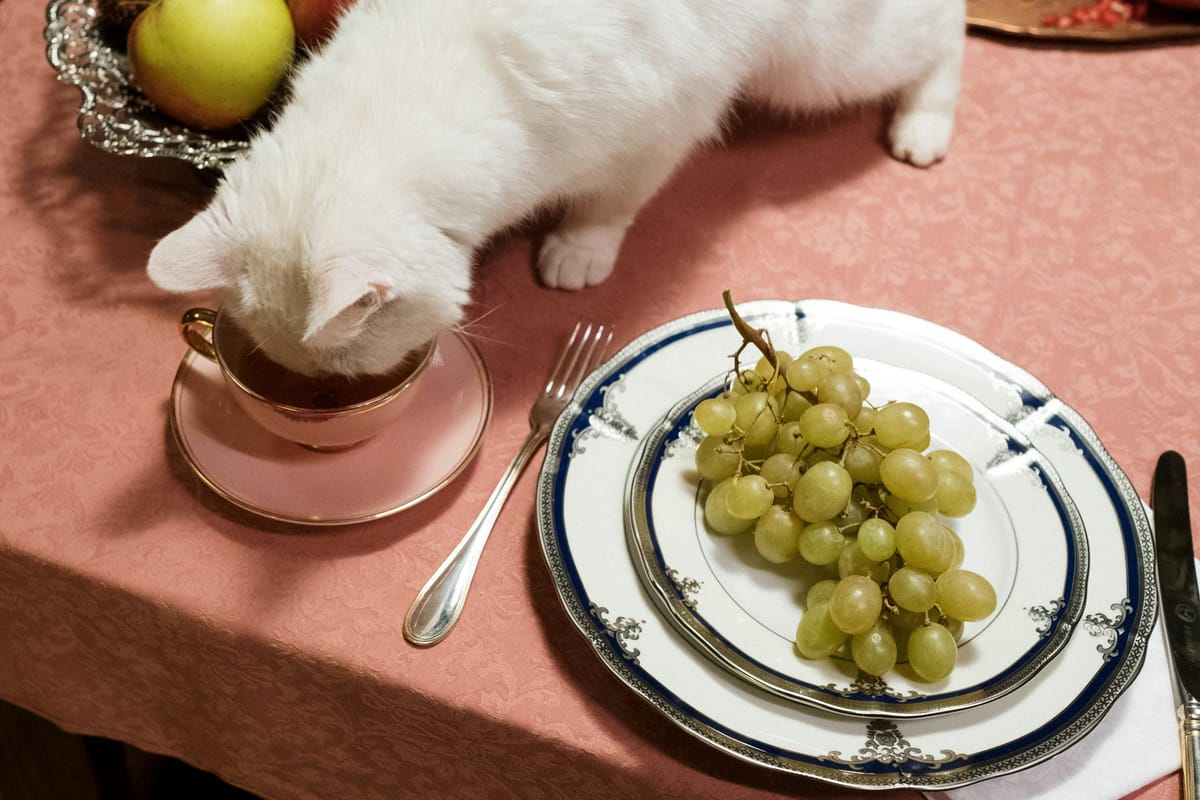WARNING: These Common Foods Could Be Deadly for Your Cat!
Your cat easily becomes a mischievous thief when you've sat down with your food. It's just waiting for you to get up and go to the bathroom so it can have a taste. Well... if any of the foods on this list are laid out, you might want to rethink going to the bathroom with no table supervision.

Have you ever wondered why Jon gives Garfield so much lasagna when, in reality, that kind of food could be seriously harmful, even deadly, for him? Just like Garfield, your cat is naturally curious and will want to taste whatever you’re eating. But some of your favorite foods could be dangerous, leading to serious health issues or even permanent damage. Here’s a list of foods they should never eat and others you should only offer with caution:
Foods Cats Should Avoid at All Costs
While some of the foods (and beverages) on this list are a no-brainer, some might surprise you.
Alcohol
Even a tiny sip of alcohol can cause severe liver and brain damage in cats. Symptoms include vomiting, diarrhea, tremors, and, in extreme cases, coma or death.
Chocolate
Chocolate contains theobromine, which is highly toxic to cats. The darker the chocolate, the more dangerous it is. It can cause heart problems, seizures, and even death.
Caffeine (Coffee, tea, energy drinks)
Caffeine poisoning can lead to rapid breathing, restlessness, heart palpitations, and muscle tremors. For cats, there’s no amount of caffeine safe for consumption.
Onions, garlic, leeks, chives, and shallots
Even small amounts of these foods can damage a cat’s red blood cells, leading to anemia. Symptoms may not appear immediately but can build up over time.
Grapes, raisins, sultanas, and currants
These seemingly harmless fruits can cause sudden kidney failure in cats. The exact reason is unknown, but even one grape or raisin can be dangerous.
Raw eggs, raw meat, and raw fish
While cats are carnivores, raw food carries the risk of Salmonella and E. coli infections. These can cause vomiting, diarrhea, and extreme lethargy.
Cooked bones
Bones may seem like a natural treat, but cooked bones can splinter and cause choking or severe internal damage.
Fat trimmings
Too much fat can lead to pancreatitis; a painful and serious condition that affects digestion.
Xylitol (artificial sweetener)
Xylitol is found in sugar-free gum, candies, and some peanut butter brands. It can cause vomiting, lethargy, and loss of coordination in cats.
Yeast dough
Raw yeast dough can expand in a cat’s stomach, causing severe bloating and even stomach rupture. Fermenting yeast also produces alcohol, making it doubly dangerous.
Foods to Approach with Caution
Dairy products
Despite the classic image of cats drinking milk, most adult cats are lactose intolerant. Milk, cheese, and other dairy products can lead to stomach upset and diarrhea.
Salt
Lots of salt can cause sodium ion poisoning. Symptoms include tremors, seizures, and even death.
Tomatoes and potatoes
While ripe tomatoes are generally safe, unripe or green tomatoes and potatoes contain solanine, which can cause digestive distress.
Avocado
Avocados contain persin, a compound that can cause vomiting, diarrhea, and stomach pain in cats.
Final Thoughts
Your cat depends on you to keep them safe and healthy. Always be mindful of what foods are within their reach, and never share your meals without checking if they’re cat-safe. If your cat eats something potentially harmful, contact your veterinarian immediately. A little caution can prevent serious health problems and keep your cat happy and healthy!